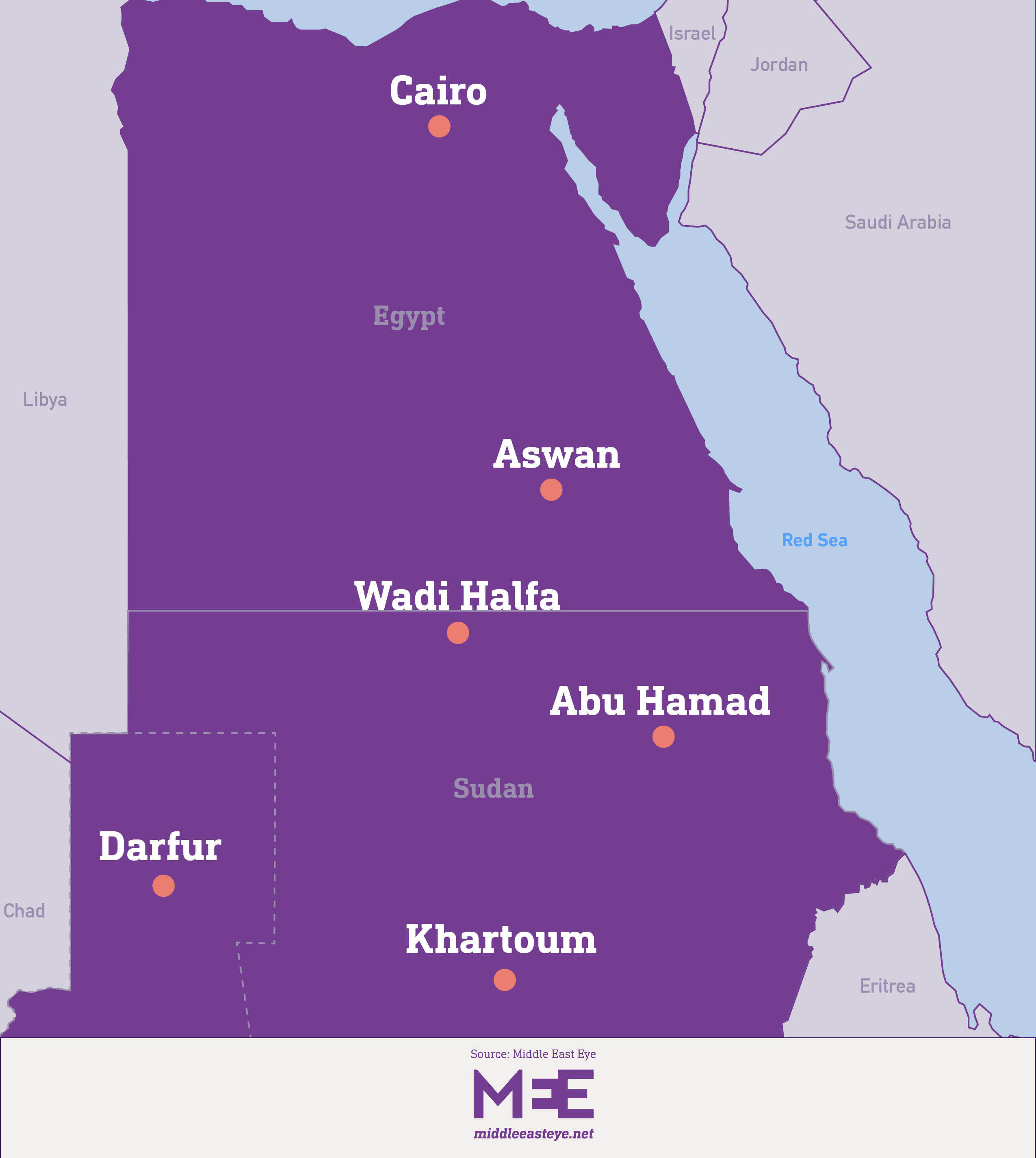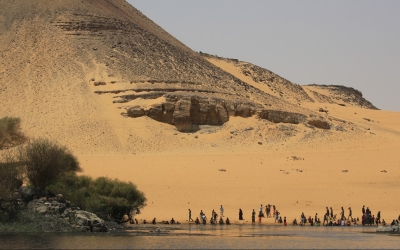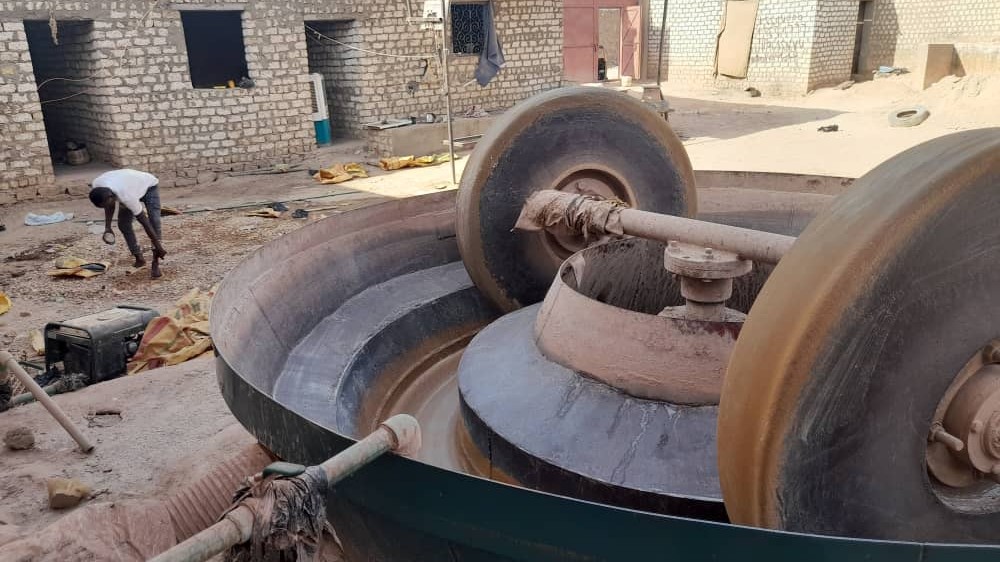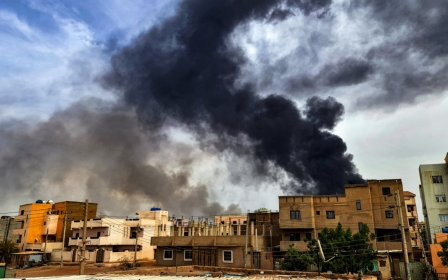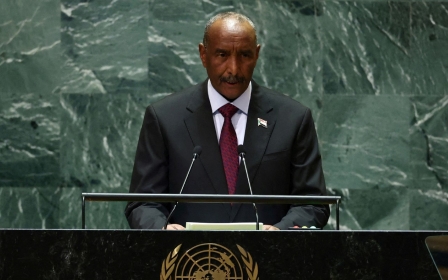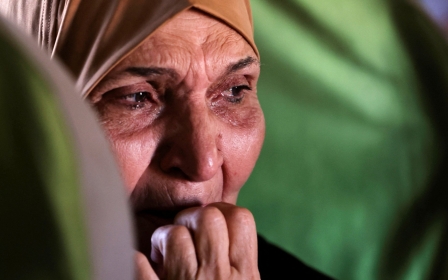Sudanese refugees find riches and repression in Egypt's land of gold
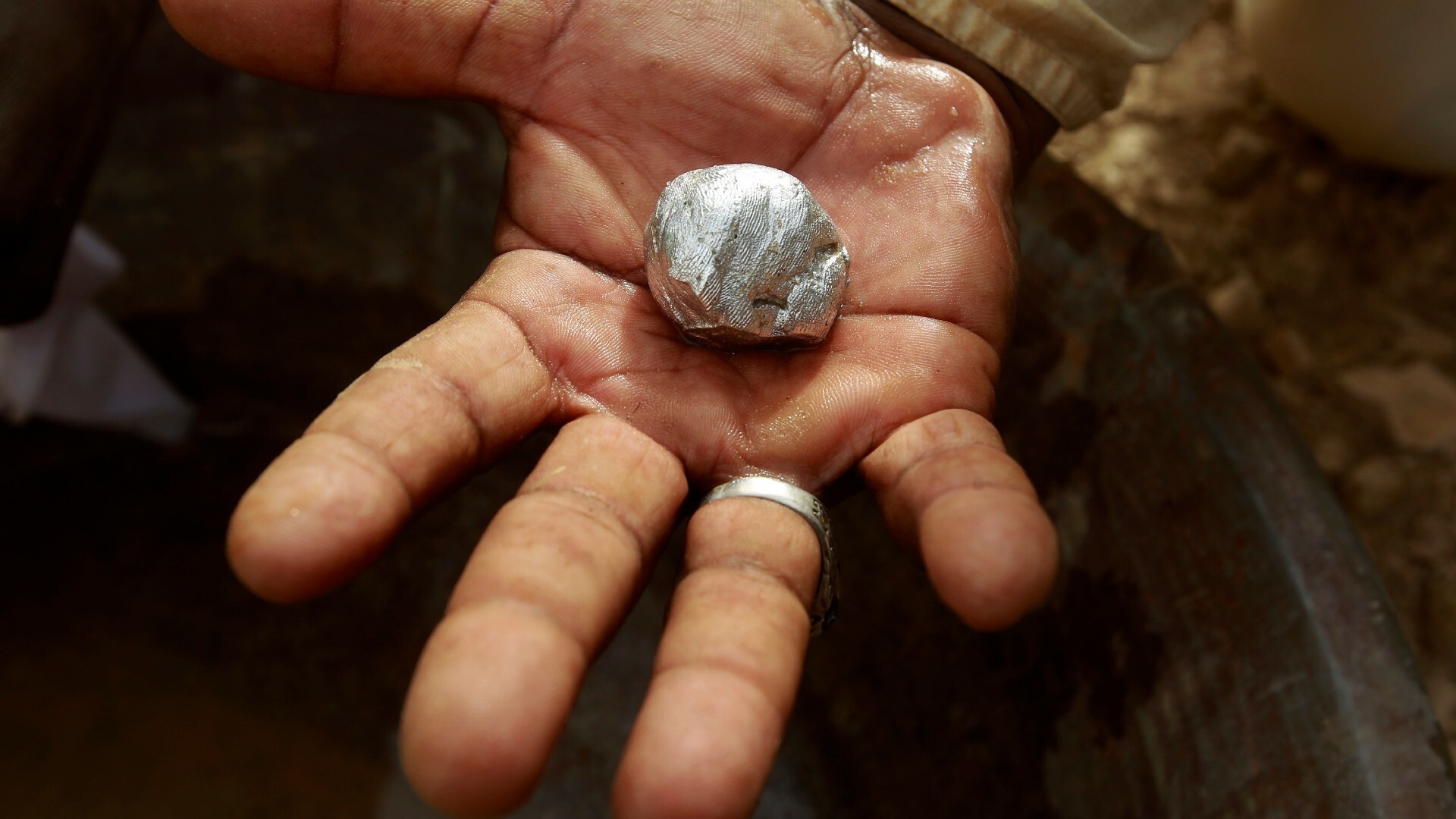
Along the corniche, the main road that flanks the banks of the river Nile in the city of Aswan, a sign reads: “Aswan. Land of gold.”
Advertisements like this can be found everywhere in a place that has, since antiquity, sat at the heart of southern Egypt’s commercial and cultural life.
The presence of gold and gold mining here goes back to the age of the Pharaohs and now, with the war in Sudan sending thousands of displaced people flooding across the border, the land of gold is booming once again.
Aswan has become a harbour for Sudanese fleeing the war in their homeland and others stopping in southern Egypt to make money in the gold mining trade before travelling on to Europe.
Sudan itself is rich in gold, and many of the refugees crossing into Egypt have already worked as irregular gold miners. Some are bringing gold with them.
New MEE newsletter: Jerusalem Dispatch
Sign up to get the latest insights and analysis on Israel-Palestine, alongside Turkey Unpacked and other MEE newsletters
Alongside the Sudanese are those looking to escape war, political instability and economic misery in Ethiopia, Eritrea, South Sudan and elsewhere in Africa.
They are travelling secretly to Aswan before heading to Cairo and then on to the Mediterranean coast.
As gold mining operations around Aswan and gold smuggling into the region increase, so too is people smuggling, with hundreds of Sudanese smuggled into Egypt every day.
This shadowy trade, which MEE witnessed on a recent trip to Aswan, is now one the main sources of income for Egyptian and Sudanese smugglers.
Land of gold
Inhabited since antiquity, today Aswan is a major tourist destination, famous for its Pharaonic museums and Nile islands, as well as for being the gateway to the temples at Abu Simbel. The city has a kind of African magic that beguiles visitors from around the world.
The war between the Sudanese Armed Forces (SAF) and the Rapid Support Forces (RSF) in neighbouring Sudan, which began last April, has led to an estimated 1.2 million Sudanese crossing the border into Egypt.
Aswan is just 300km from the Egypt-Sudan border and the arrival of newcomers, who are renting houses and bringing gold smuggled from gold-rich areas in Sudan’s northern, river Nile and eastern states, has in some ways invigorated it.
The city’s poorer inhabitants, though, are struggling to meet their basic needs, while unemployed young people can only find seasonal work in the tourism sector. Locals are complaining about an increase in prices fuelled by Aswan’s booming gold trade and the new arrivals bringing gold from Sudan.
War in Sudan
Hamad Osman was a gold mining labourer in the Dar Mali area near Atbara in northern Sudan when war broke out. He moved to Aswan at the end of 2023 after most of Sudan’s gold markets closed and gangs overran the country’s gold mining areas, looting miners and labourers.
Osman is one of thousands of young Sudanese working as miners or labourers in Sudan who have since moved to Aswan, paying just $100 to get from Atbara or Abu Hamad to reach Egypt as part of people smuggling operations.
“There was wide insecurity in the area I was living. This is the situation in many of the gold mines in Sudan after the eruption of the war,” Osman told Middle East Eye.
'I was arrested with hundreds of other Sudanese, including women and children, and held at a detention centre near the border'
- Muwaia Alnur, Sudanese refugee
“The miners started to stabilise the situation and secure the mining areas by themselves, and they sometimes got help from the local governments. But the bigger problem – which pushed many of us to go to Egypt – was the fluctuation of gold prices in Sudan, the hiking of prices and widespread shortages,” he said.
So, Osman moved to Egypt, working as a gold miner in the Eastern desert around Aswan and on the border.
But while young Sudanese men are working in Egypt, they are also arranging to bring gold across the border.
“We have a lot of colleagues in Sudan who we are coordinating with to bring gold from Sudan to sell in Egypt,” Osman said. “It’s a very flourishing business now.”
But Egyptian authorities have also arrested thousands of Sudanese journeying to Egypt, detaining some and returning others to Sudan.
One of those is Muwaia Alnur, who was arrested in an area close to Aswan and put in prison for nearly a month before he returned to Sudan.
“I was arrested with hundreds of other Sudanese, including women and children, and held in bad conditions at a detention centre near the border with Sudan,” Alnur told MEE.
“The Egyptians moved me with 11 other Sudanese back to Wadi Halfa, where Sudanese authorities received us before freeing us,” Alnur, who is now in Dongola in northern Sudan, said.
Gold economy
About 30kms south of Aswan, the scope and scale of gold mining in the region can clearly be seen at al-Kassarah, a gold mining area and one of the last transit points for Sudanese smugglers before reaching Aswan.
Along the road from Aswan there is a small industrial area full of cement, petrochemical and other small industrial factories, including gold factories.
At al-Kassarah, hundreds of gold extraction plants, stores of mercury and cyanide are everywhere to be seen. Large machines and huge containers sit out in the open.
Thousands of Egyptians, Sudanese and others from elsewhere in Africa are working here, or employed in local hotels, restaurants and plants that use illegal mercury and cyanide in gold extraction.
Gold mining labourers from Sudan, who fled the insecurity around Sudan’s gold mining areas in Darfur and elsewhere, are bringing large stones on big trucks to have the gold from them extracted. Others can be seen taking a break from work alongside Ethiopian tea sellers.
Hundreds of people are smuggled into Sudan from Egypt every day. During the two hours MEE spent in al-Kassarah, four Toyota pick-up trucks entered the market, each carrying about 40 people.
Mohamed Ansari, an Egyptian gold trader, told MEE gold production in the Aswan area is high, and that this had attracted thousands of Sudanese gold miners and labourers after the outbreak of war.
“Some of the Sudanese have also rented gold mines in the area,” he said.
“If the mines are well equipped with plants, machines, electricity from solar energy and other infrastructure, they can be rented for nearly $20,000 per year, but as an owner I have to take half of the tailing,” Ansari told MEE, referring to the gold left after the extraction process.
Ansari said Aswan and the area surrounding it had become the “main hub for gold production, as well as for buying and selling gold coming from Sudan and the border areas”.
Nazar al-Sadig, a Sudanese gold miner, told MEE he had left his home in North Kordofan, walking for many days to reach Abu Hamad in northern Sudan, before smuggling himself into Egypt, where he now works in gold mining close to Aswan.
“I fled Sudan due to the war. I have good amount of gold that I brought from Kordofan,” al-Sadig said.
“I sold it to Egyptian traders near Aswan and I bought some gold plants and started working. Although I can’t go back to my country due to the war and Egyptian police restrictions, I can still work and make money.”
People smuggling
While some are staying in Aswan, many others – including poor labourers from Sudan, and Ethiopian refugees also fleeing the war in Sudan – are crossing into Egypt hoping to reach the Mediterranean and then Europe.
Tarhas Ibraham, an Ethiopian woman, was working as a tea-seller before having to flee Sudan. She is now working for a restaurant in a remote gold mining area of Aswan governorate, cooking food and performing other duties.
“I came from Ethiopia to Sudan some years ago, then to Egypt,” she told MEE. “It is a hard and long journey through all this distance and countries. I want to make the money needed to go through the Mediterranean to Europe.”
A Sudanese labourer, Adam Mohamed, told MEE he had heard there were smugglers who could help to take him to Europe through the Mediterranean, but that they were charging at least $2,000.
“They are asking for a lot of money,” he said. “So I prefer to stay for some time, to work as a labourer in the gold mining areas here so I can collect the money before I move.”
Middle East Eye delivers independent and unrivalled coverage and analysis of the Middle East, North Africa and beyond. To learn more about republishing this content and the associated fees, please fill out this form. More about MEE can be found here.


